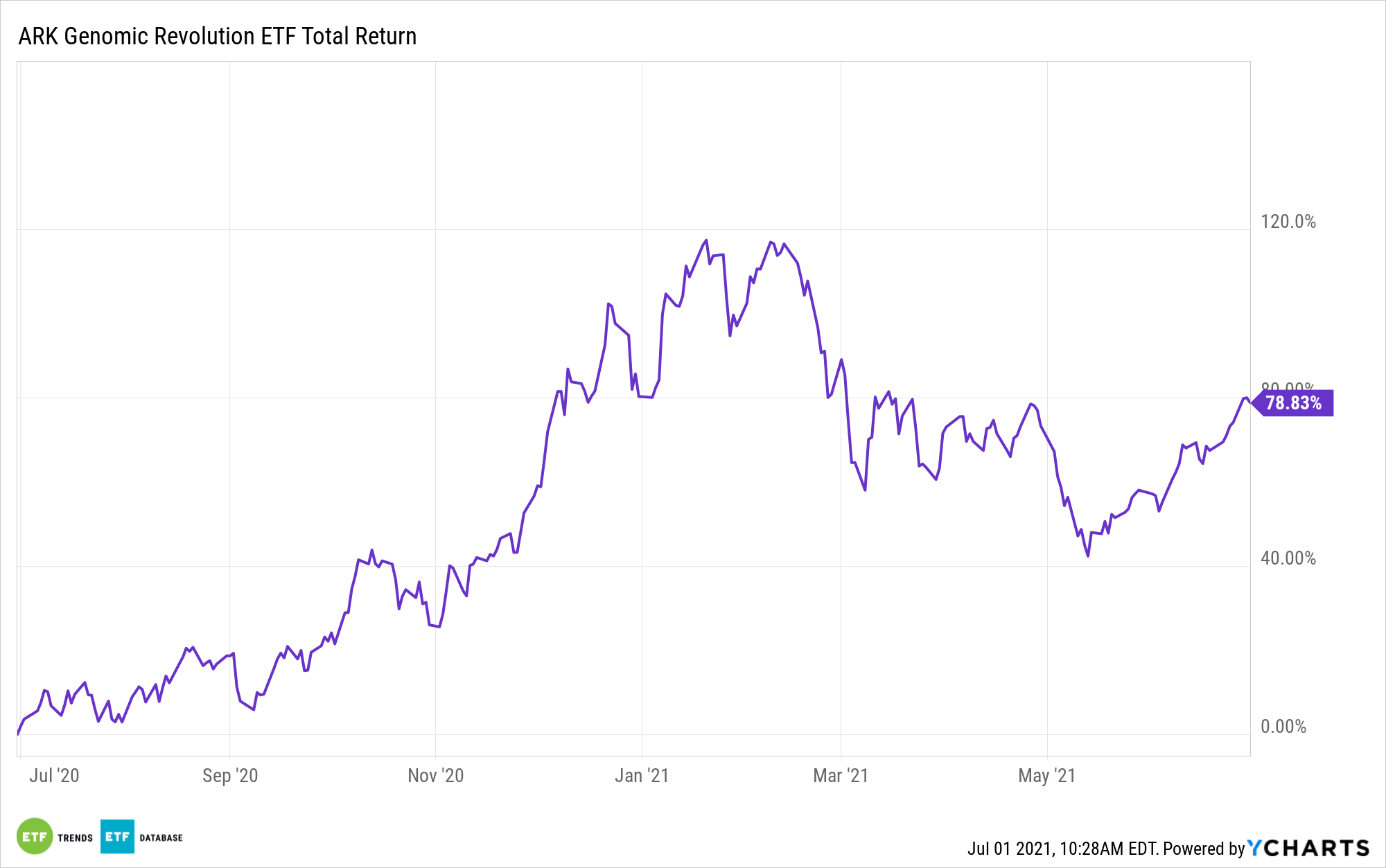The ARK Genomic Revolution Multi-Sector Fund (CBOE: ARKG) closed June on a strong note. It’s not difficult to explain why.
Last weekend, ARKG components Intellia Therapeutics, Inc. (NASDAQ: NTLA) and Regeneron Pharmaceuticals Inc. (NASDAQ: REGN) revealed encouraging results from an ongoing Phase I clinical trial for an in vivo genome editing therapy, prompting a massive spike in Intellia shares.
The announcement is historic because it’s the first positive case study of a CRISPR Cas9 rooted in vivo gene editing aimed at helping patients suffering from Hereditary Transthyretin Amyloidosis (hATTR).
“hATTR is a disease in which amyloid proteins build up and, if untreated, can cause multiple organ failures. Typically, the primary impact is on the heart and nerves,” according to ARK research. “Until now, patients with hATTR faced limited curative treatment options. Alnylam’s Patisiran knocks down serum TTR by 80%, but greater knock down rates could enhance the clinical benefits.”
Another New Frontier for ‘ARKG’
While Intellia’s in vivo gene editing success is still in the formative stages – it’s a Phase I trial being discussed after all – it is one more example of ARKG leveraging active management to remain on the cutting edge of healthcare advancements and innovation.
Particularly relative to index funds in the space, ARKG has long proven itself to be a leading when it comes to innovative healthcare concepts including base editing, CRISPR, gene editing, precision medicine, pre-cancer screening, and more.
Should Intellia and Regeneron prove successful in advancing the hATTR therapy and bringing it to market, it could prove to be further confirmation of ARKG’s ability to get ahead of genomics trends before those concepts become reality for patients.
“Intellia Therapeutic’s presentation highlighted that editing the TTR gene could result in a one-time treatment, eliminating the need for chronic therapy,” adds ARK. “In a small six-person dose escalation study, the company showed that, in the second cohort at 0.3 mg/kg, three patients achieved an 87% average mean reduction in TTR and a max reduction of 96%, surpassing that of Patrisiran and other therapies. In our view, as Intellia escalates the therapeutic dose, higher reductions in TTR will lead to better patient outcomes.”

For more on disruptive technologies, visit our Disruptive Technology Channel.
The opinions and forecasts expressed herein are solely those of Tom Lydon, and may not actually come to pass. Information on this site should not be used or construed as an offer to sell, a solicitation of an offer to buy, or a recommendation for any product.

